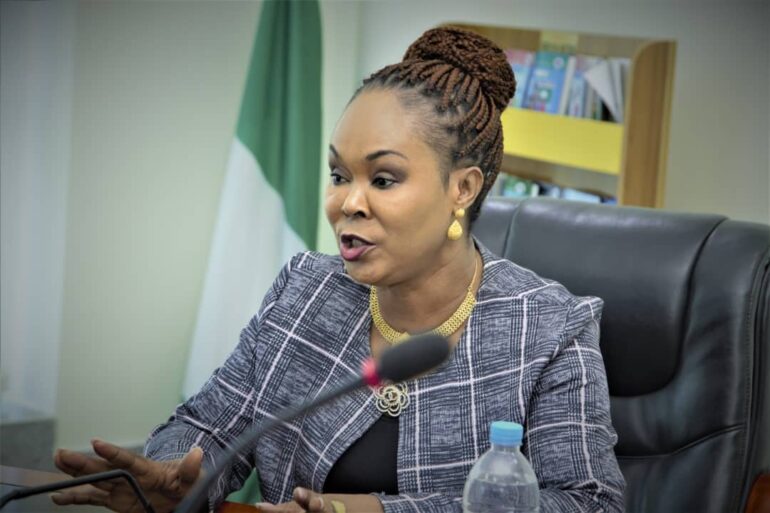The Minister of Women Affairs Uju Kennedy-Ohanenye says the lawsuit challenging the proposed mass marriage of 100 orphaned girls in Niger State has not been withdrawn.
“The case is not yet withdrawn. I want to make that clear. How do I withdraw a case in a day?” the minister said on Friday’s edition of Channels Television’s Politics Today.
“Well, before I even withdraw the case, we have to go back to court and then tell the court that we have settled. We are withdrawing the case. Do you understand?
“How can I go and withdraw? We are still trying to organise ourselves on how to partner well and get this problem sorted.”
Her comment followed the Niger State House of Assembly Speaker Abdulmalik Sarkindaji’s proposed mass marriage of 100 orphaned girls in his constituency.
The move got a pushback from several quarters, prompting the minister to file a suit challenging the proposed marriage. Following the backlash, Sarkindaji said he was discontinuing with the plans.
Although the duo met on Friday to explore options to resolve the issue the minister explained that, “I filed a motion ex parte. I equally filled a motion on notice. Why did I do that before I met with my brothers and we decided to make peace?
“I filed it because, by the time motion ex parte expires, they must have gotten their seven days to file their response.
“But if I didn’t get the motion ex parte, the wedding could go on before they would be able to file and the whole thing must have been overtaken by events.”
Determined to give the orphaned girls a better life, Mrs Uju says the ladies will be empowered.
“Those that have finished secondary school, they could enter an open university while they’re doing their businesses or we would get a job for them while they’re doing their business when they’re going to school,” she said.
“Then those that have not finished secondary school will go back to school and finish. This is something that will be applicable to them: going to an open university and equally having something to do. Like this PoS, those that have finished secondary school and are both 18, we could allow them to start earning money while they are going to school.”


